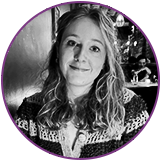Because accountants are human too
Hannah Macdonald is a chartered accountant. She created Accountancy Hub during lockdown in December 2020 to bring together in one place support for accountancy trainees. Accountancy Hub really puts the trainee first and is a community offering support focused on wellbeing, careers and inclusion. It will be live from 22 January 2024.

Photo by Nathan Dumlao on Unsplash
During lockdown, I was studying the ACA at one of the top professional services firms. I’d failed a few of the first exams — which had been personally horrifying — and now I was tackling the next level of exams. Our exams became remote due to the pandemic, the exam software changed, and there was a move from physical books to e-books. All of this was a lot to deal with, and I felt there wasn’t enough support out there, nor a forum for all trainees to talk to each other quickly and easily.
Recently, I decided to quit my stable job as a business consultant in EDI (equity, diversity and inclusion) and give Accountancy Hub a real go! Propped up by some savings and part-time work as a contractor, I have spent the last few months building everything I wish I’d had at my fingertips during those tough exam times.
My accountancy journey
Failing a few of those first exams made me think accountancy wasn’t for me and I should probably move on and do something else with my life. But with a lot of determination and extra tuition, I got through the resits and I then did much better with the later exams. I worked hard, using my annual leave to study, studying weekends and evenings. None of this is particularly unusual for accountants studying while working full-time.
I was on a particularly detailed internal audit looking at key financial controls when I thought I might be dyslexic. I was approaching my final few exams, so I requested an assessment and took tests with a professional. At the end of the day, she said, “I will need to analyse the results of the tests fully but I am confident to tell you now that you are neurodivergent with dyslexia. I’ll be recommending 25% extra time for any further examinations you have.”
Well, I only had one exam left! And was waiting for the results of two others, which both came back as passes (just). I could not believe it. No one had noticed at work, there had been signs at school, and I did have extra time for some exams during my education, but I had never had a full dyslexia diagnosis.
Knowing I had a full extra hour, studying for the final exam felt great, but those five-hour mock exams were tiring, to say the least. We once had an in-class mock with a 9am start time, which meant I would go straight into the afternoon exam if I used my extra time. I was told I could miss lunch or start at 8am, so needless to say, I started early, but it frustrated me that my needs seemed like an afterthought. Having extra time is brilliant, but it means you have to work longer and potentially with fewer breaks.
What Accountancy Hub provides
I’ve incorporated practical advice for neurodivergent trainees into Accountancy Hub. I’ve also included advice for studying parents, those new to the corporate world, and those who have failed exams. There is workplace advice around how to be a better ally, tips for ‘coming out’ in the workplace and challenges for women. Accountancy Hub also provides a directory of people who support trainees in their exams and careers, such as private tutors, coaches and mentors.
Other features include a job board specifically for part-qualified or qualified accountants, a community forum, and a podcast. In recent episodes, I chat with trainees, accountants, leaders and coaches about the industry, and how they stay human during challenging times at work.
Finally, I’ve partnered with lifestyle and wellbeing brands who kindly offer discounts to Accountancy Hub members, from food delivery services and career support to pilates classes and sleeping apps!
Why I’m passionate about inclusion
Putting my dyslexia to one side, I’ve spent many years working to develop EDI strategies both in-house and in client-facing roles, improving inclusive practices and ultimately increasing diversity across a range of organisations and industries. In my experience, however, EDI is often still seen as a branding tool or even a compliance ‘tick-box’ exercise.
The Financial Conduct Authority [Note 1] has identified lack of diversity as a factor in the 2008 financial crisis. Looking at studies comparing risk management outcomes between diverse and non‐diverse boards, the FCA says businesses with more diverse and risk-averse boards had better outcomes. I strongly believe reducing ‘groupthink’, encouraging diversity of thought, and having psychologically safe working environments greatly improve results and allow businesses to better serve their customers and clients.
This is why inclusion is the backbone of Accountancy Hub. I dream that finance and accounting is a welcoming and inclusive industry with minimal entry barriers. Through my conversations with industry leaders over the last few months and my own experience at a professional service firm, I’ve noticed a disconnect between their selection/recruitment practices and their early career procedures and exam policies.
In my experience of supporting trainees, those with diverse characteristics struggled more with exams. Unfortunately, many withdrew from the qualification and dropped out of the industry altogether. These were often diligent individuals with reputations for producing quality work, so I was sad to see them leave.
I feel the industry can do more to retain talent. And that’s where Accountancy Hub comes in. We will support trainees in any way we possibly can!
Find out more about Accountancy Hub. Sign up to my newsletter to follow my journey as Accountancy Hub develops.

Notes
Financial Conduct Authority (FCA), (2023), DP 21/2: Diversity and inclusion in the financial sector – working together to drive change | FCA (Accessed: 16 January 2024). ^
© AccountingCafe.org
Part of the News series
Join the Accounting Cafe community




